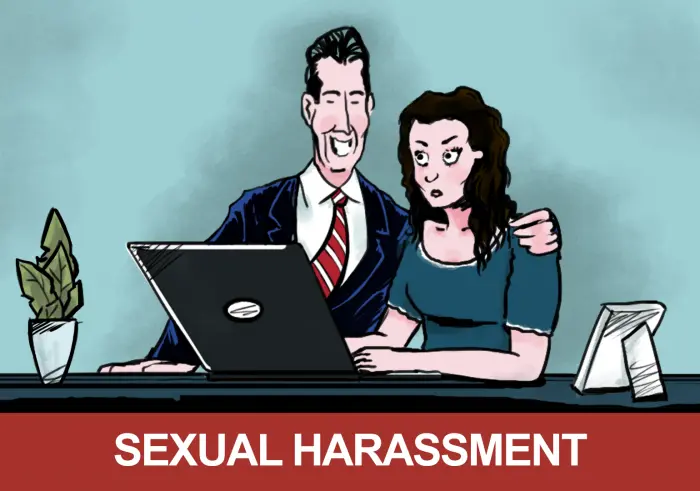What is the Stop Sexual Harassment in NYC Act?
Your questions about sexual harassment in the workplace, answered

The NYC law provides stronger protections than federal sexual harassment laws.
But what is the Stop Sexual Harassment in NYC Act? How does the Act define sexual harassment? And how can you protect your rights with the Stop Sexual Harassment in NYC Act?
Our FAQ answers your questions about the Stop Sexual Harassment in NYC Act.
What is the Stop Sexual Harassment in NYC Act?
The Stop Sexual Harassment in NYC Act targets sexual harassment in the workplace. The act strengthens workplace sexual harassment protections. The City Council passed the act and Mayor de Blasio signed it into law in May 2018.
The act covers public and private employees working for employers of any size. It also expands the length of time to bring a sexual harassment claim from one year to three years. Some of its provisions were put into effect immediately, while others phased in by April 2019.
New York City workers benefit from the Stop Sexual Harassment in NYC Act, which provides stronger protections than any other federal, state, or local harassment law.
What Does the Act Define As Sexual Harassment?
The Stop Sexual Harassment in NYC Act covers three types of sexual harassment:
- Quid pro quo sexual harassment (requesting sexual favors for favorable treatment at work)
- Unwanted contact
- Hostile work environments
The act also expands the New York City Human Rights Law (NYCHRL) definition of sexual harassment, adding a provision covering all gender-based harassment.
As the act states, “The council further finds and declares that gender-based harassment threatens the terms, conditions and privileges of employment.”
Expansion of anti-discrimination protections under the NYCHRL
The Stop Sexual Harassment in NYC Act expands sexual harassment protections for New York workers.
Under the act, any employee, regardless of the size of their employer, can sue for sexual harassment. Before the act, only employers with at least 4 employees could be held liable. This provision went into effect in May 2018.
The act also gives employees more time to bring a sexual harassment claim. Previously, employees only had one year after the offensive behavior to bring a claim. Now, employees have three years. This provision also went into effect in May 2018.
What is the Mandatory Anti-Harassment Training?
The Stop Sexual Harassment in NYC Act includes mandatory anti-harassment training for public agencies and private employers, beginning April 1, 2019.
While all public agencies must conduct annual anti-harassment training, only private employers with more than 15 employees, including interns, must comply with the provision.
All employees who work at least 80 hours per year must complete the anti-harassment training, with supervisors and managers receiving additional training about their responsibilities, how to prevent sexual harassment, and retaliation.
New employees must receive the training within 90 days of being hired unless that employee received the training at their previous employer within the past year.
The training must be interactive and can be completed in person or online.
What Must The Mandatory Anti-Harassment Training Cover?
The anti-harassment training must cover a number of topics listed in the Stop Sexual Harassment in NYC Act.
- Anti-harassment training must define sexual harassment.
- The training must inform employees that sexual harassment constitutes discrimination in violation of federal, state, and local law.
- The training must give specific examples of what does and does not constitute sexual harassment.
- It has to instruct bystanders about what they can do to stop or prevent sexual harassment.
- Employers also must educate employees about how to bring a complaint about sexual harassment both internally and with federal, state, and city administrative agencies.
Who Creates the Anti-Harassment Training?
Employers can either create their own anti-harassment training or use the publicly available online training modules created by the New York City Commission on Human Rights.
However, each employer must supplement the Commission’s training with information about its own internal complaint process.
Employers must keep a record of all training and get a signed acknowledgment from each employee attesting that he or she completed the training. The employer has to retain these records for at least three years and furnish them to the Commission upon request.
Notice of Anti-Harassment Rights and Responsibilities
Starting on September 6, 2018, all employers must post an anti-harassment rights and responsibilities poster in an area where employees can easily see it. The poster will be designed by the Commission.
Employers also must give all new hires an information sheet on sexual harassment and provide anti-harassment training within 90 days of hiring. The Commission will create the required information sheet.
Stop Sexual Harassment Act NYC Requirements for City Contractors
City contracts must also follow the provisions of the Stop Sexual Harassment in NYC Act.
As of July 8, 2018, employers that contract with New York City are required to file their practices, policies, and procedures to prevent and address sexual harassment with the city.
This should be included in the report they submit for certain contracts, according to the rules of the City Charter.
What Can New Yorkers Do About Workplace Sexual Harassment?
The Stop Sexual Harassment in NYC Act protects your rights.
If you experience sexual harassment at work, contact a New York employment lawyer to discuss your options. Charles Joseph, a sexual harassment lawyer with over 20 years of experience, offers free, confidential consultations.
Employers and employees can also read more about other sexual harassment laws that protect workers in New York City.
Sexual Harassment Rights, Laws, and Potential Damages
